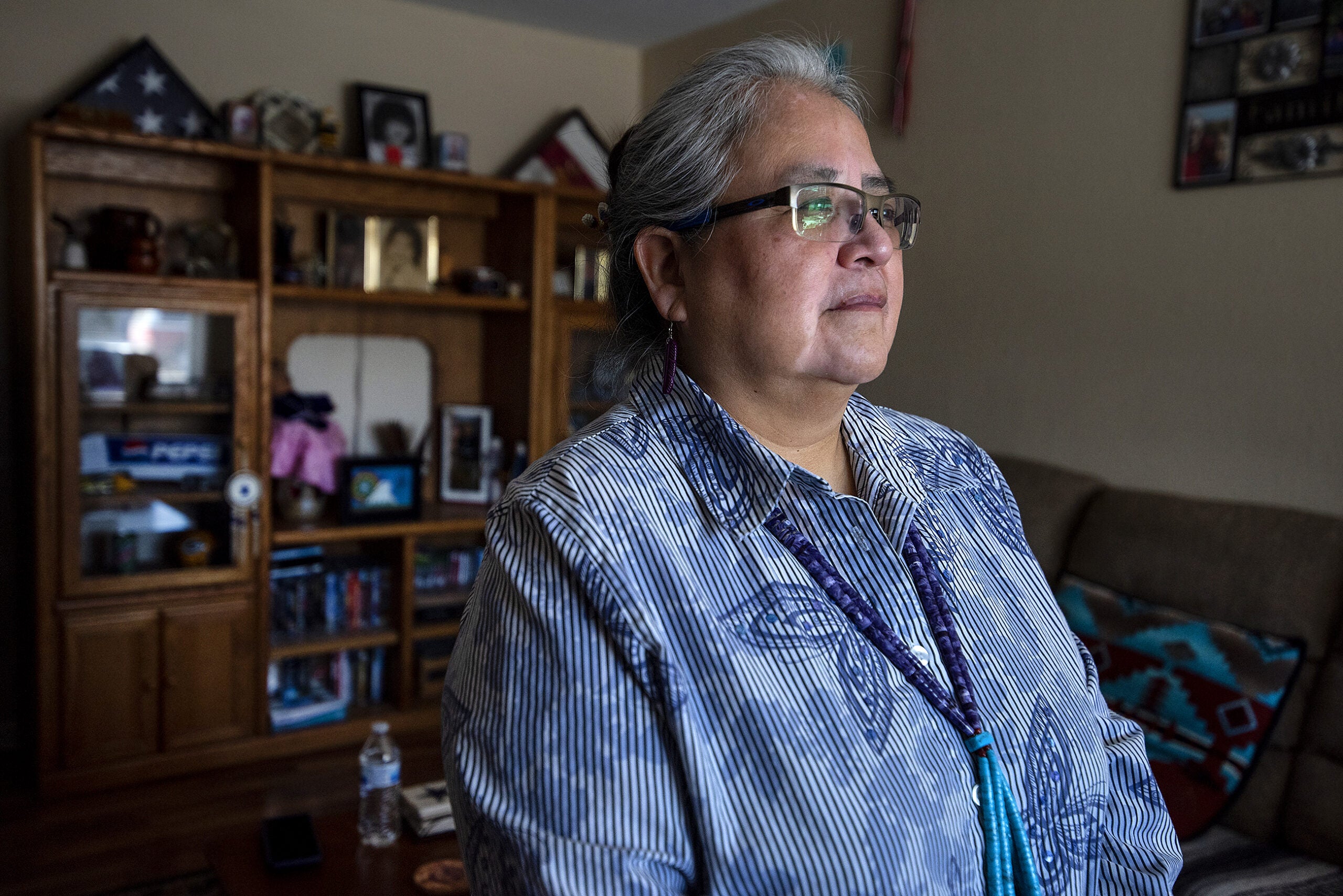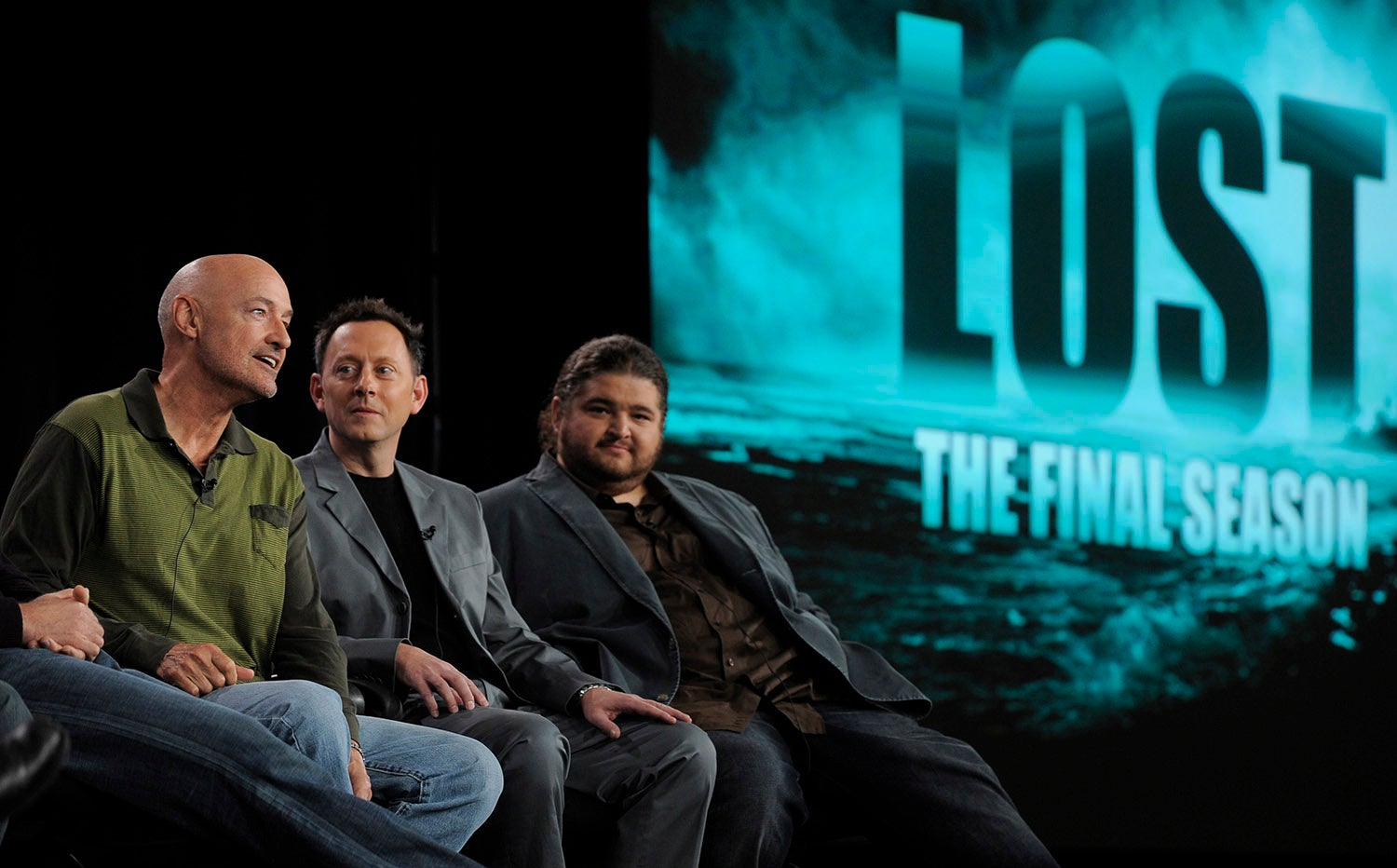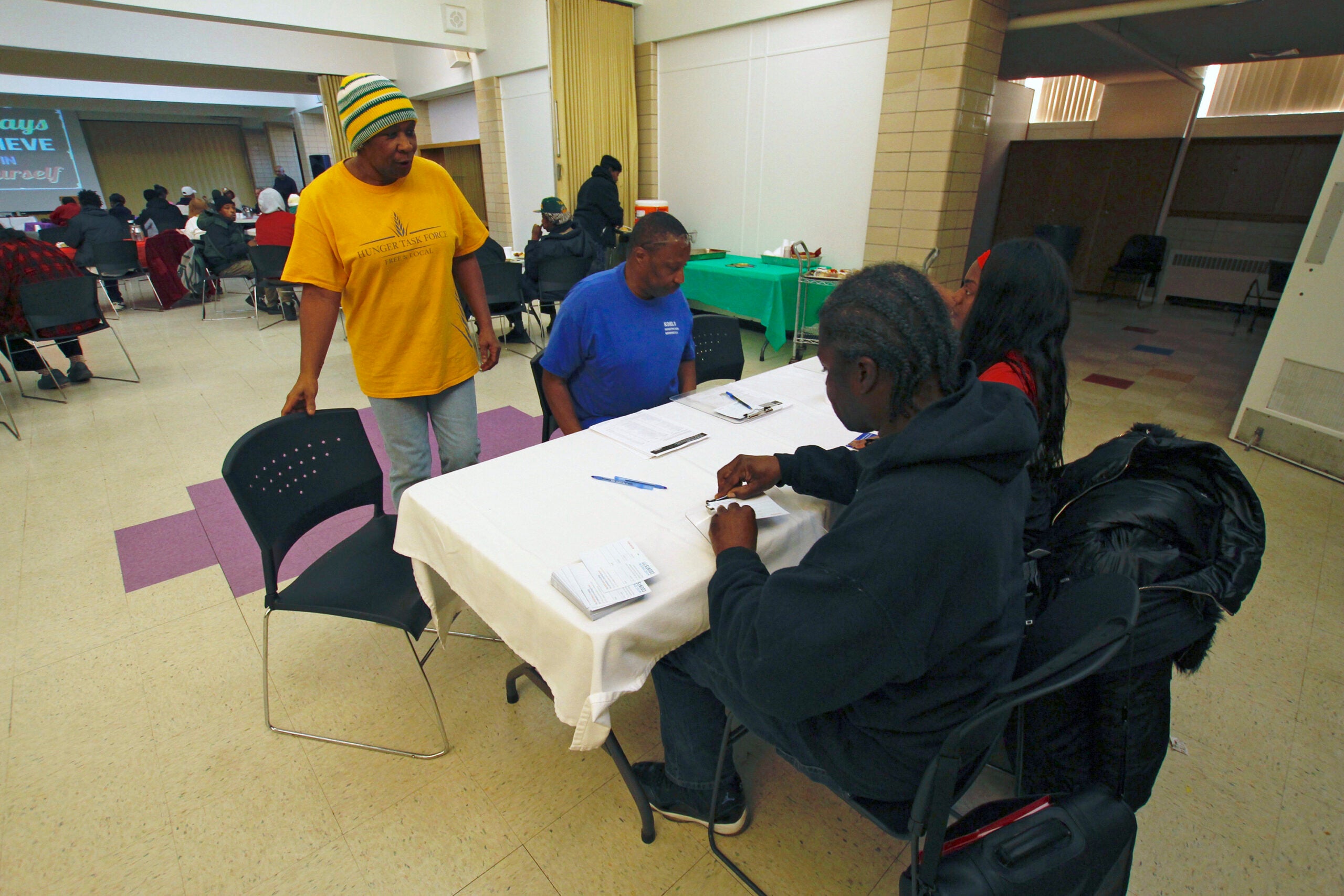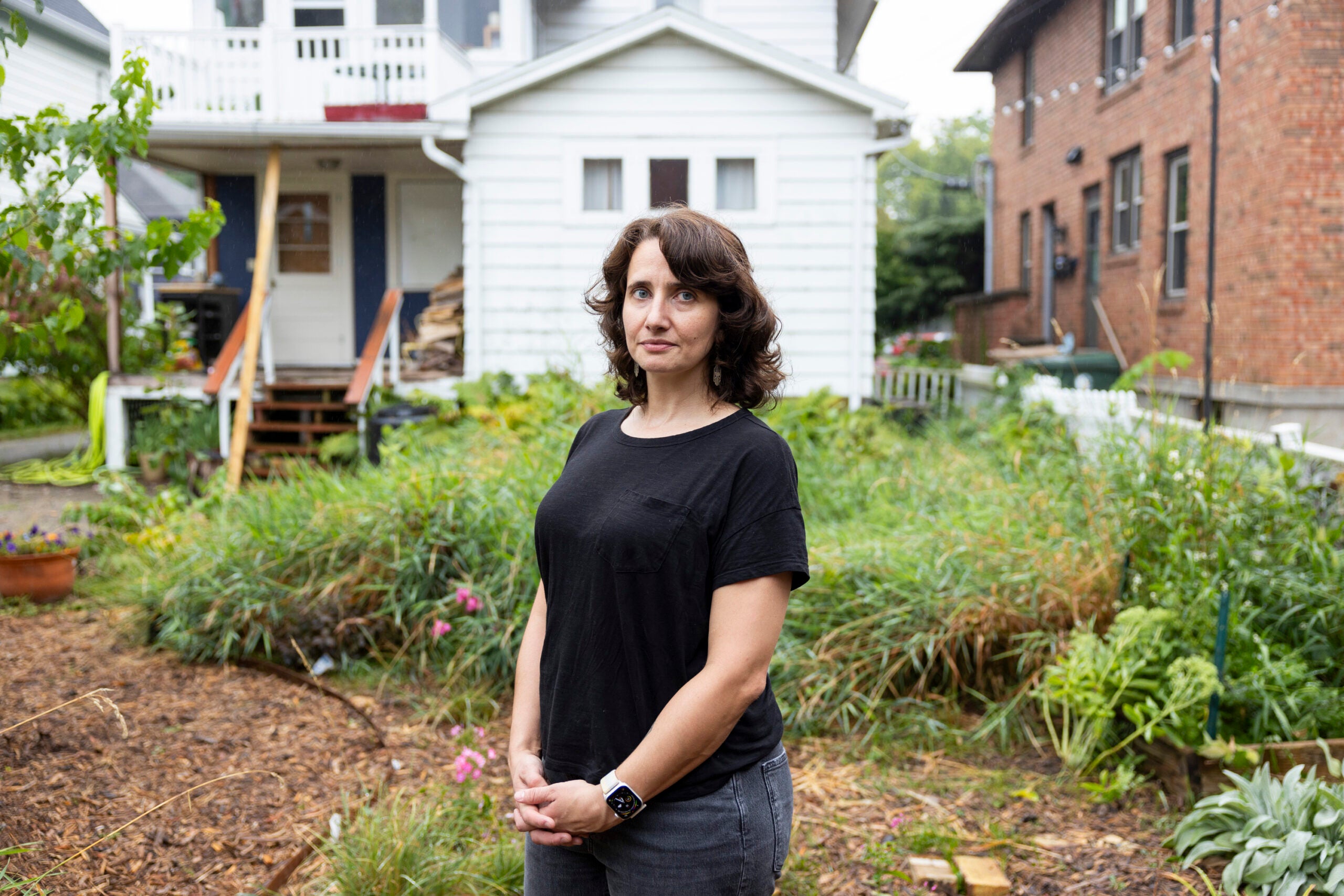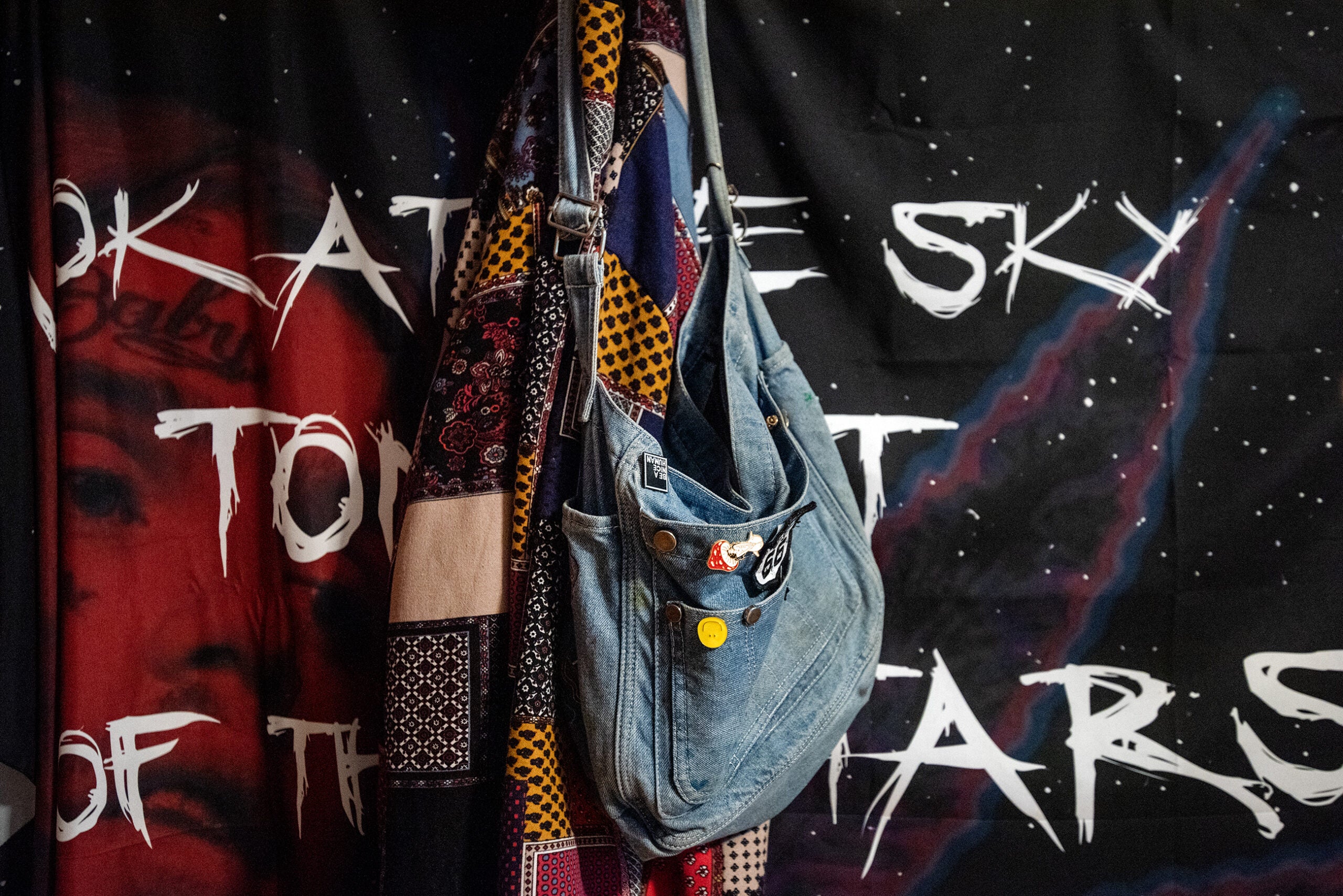Each day Carol Schumacher thinks of one of the family members she lost to COVID-19.
The 55-year-old of Sun Prairie, whose Navajo name is Azdzaa Nizhonii, has lived in Wisconsin for more than 25 years. She is originally from the Navajo Nation reservation in northern Arizona.
Like many Native communities, the Navajo Nation was disproportionately affected by COVID-19. Schumacher’s small home community of Chilchinbeto has lost more than 100 people and was so devastated early on in the pandemic that it was closed to outside visitors.
News with a little more humanity
WPR’s “Wisconsin Today” newsletter keeps you connected to the state you love without feeling overwhelmed. No paywall. No agenda. No corporate filter.
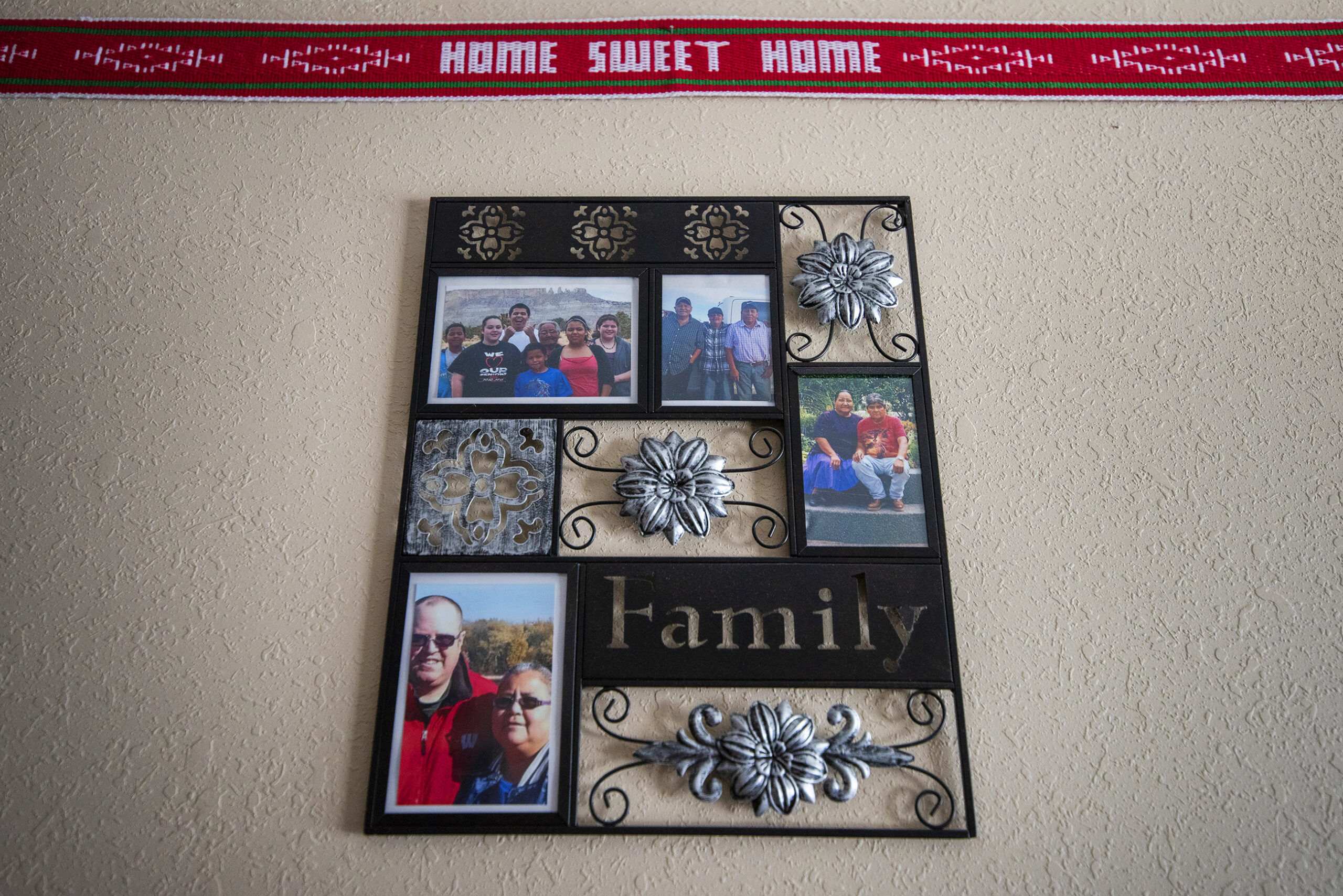
Listen to Carol Schumacher
Early April, my sister ended up in the hospital. After a week of being there, she wasn’t getting any better and she got sent out because the small hospital on the reservation didn’t know what to do. They weren’t prepared for this virus. And then her son, my nephew, ended up getting sick. By late April, I had quite a few family members in the hospital.
My first loss was my brother, Chee Sam Mailman. With the social distancing, people stayed away from each other so nobody knew that he was sick. By early July, my niece got word somehow that nobody’d seen the horses or the sheep out and she went to check. She found him on the floor and he was burning up. He passed away the next day. And then my niece got sick.
Like dominoes falling, it was just one after the other — my mom’s older sister, her granddaughter, her other younger daughter, my brother Hank. My dad survived the virus but ended up with a breathing issue. He passed away in September. That was one of the hardest ones to take.
In just the month of December 2020, I lost 12 family members. It was three or four every weekend. We were putting them away, sending them off — no proper goodbyes, no proper service, trying to raise money for the cost, trying to understand this, trying to process our losses.
My niece passed away Jan. 10 of this year. That’s 27 family members that we lost.
This past summer it hit me really hard how much this virus has altered our lives. It affected my health. I had just been holding my grief in. I got a counselor and I started talking about my losses. Each day I have a name I hold — Chee Sam Mailman, Amelia Nez, Gloria Smith, Hank Begay, Herbert Benally — so much more.
All of this COVID-related stuff — people think it was hard to do it out here, in Madison. Everything is right there at the tip of my hands. Any service I want, it’s there. It’s not like that back home. I mean, to the nearest grocery store it’s three hours away. You know, families are scared to go anywhere. They’re running out of food. Some homes don’t have electricity, don’t have running water. You got anywhere from seven to 10 or 11 family members in the home. If one of them got sick, how do they even quarantine?
This is real. It’s never been anything but real for me, for my family, for my kids, for my community, for my people. This is real. When I start thinking about the disparities and the challenges that we as a people have survived from the beginning of time, I guess, you know, nothing’s really changed for us.
Being 2,000 miles away from her family, Schumacher is grateful for the support of her colleagues at Madison West High School, who set up a GoFundMe to help the Chilchinbeto community.
‘I’ve never smelled my own child’
[[{“fid”:”1647706″,”view_mode”:”embed_portrait”,”fields”:{“alt”:”Cassandra Ambrosius holds her son, Abrams”,”title”:”Cassandra Ambrosius holds her baby, Abrams”,”class”:”media-element file-embed-portrait media-wysiwyg-align-right”,”data-delta”:”8″,”format”:”embed_portrait”,”alignment”:”right”,”field_image_caption[und][0][value]”:”%3Cp%3ECassandra%20Ambrosius%20holds%20her%20son%2C%20Abrams.%20Ambrosius%20lost%20her%20senses%20of%20taste%20and%20smell%20in%20December%202020%2C%20and%20they%20have%20not%20returned.%26nbsp%3B%3Cem%3EPhoto%20courtesy%20of%20Cassandra%20Ambrosius%3C%2Fem%3E%3C%2Fp%3E%0A”,”field_image_caption[und][0][format]”:”full_html”,”field_file_image_alt_text[und][0][value]”:”Cassandra Ambrosius holds her son, Abrams”,”field_file_image_title_text[und][0][value]”:”Cassandra Ambrosius holds her baby, Abrams”},”type”:”media”,”field_deltas”:{“8”:{“alt”:”Cassandra Ambrosius holds her son, Abrams”,”title”:”Cassandra Ambrosius holds her baby, Abrams”,”class”:”media-element file-embed-portrait media-wysiwyg-align-right”,”data-delta”:”8″,”format”:”embed_portrait”,”alignment”:”right”,”field_image_caption[und][0][value]”:”%3Cp%3ECassandra%20Ambrosius%20holds%20her%20son%2C%20Abrams.%20Ambrosius%20lost%20her%20senses%20of%20taste%20and%20smell%20in%20December%202020%2C%20and%20they%20have%20not%20returned.%26nbsp%3B%3Cem%3EPhoto%20courtesy%20of%20Cassandra%20Ambrosius%3C%2Fem%3E%3C%2Fp%3E%0A”,”field_image_caption[und][0][format]”:”full_html”,”field_file_image_alt_text[und][0][value]”:”Cassandra Ambrosius holds her son, Abrams”,”field_file_image_title_text[und][0][value]”:”Cassandra Ambrosius holds her baby, Abrams”}},”link_text”:false,”attributes”:{“alt”:”Cassandra Ambrosius holds her son, Abrams”,”title”:”Cassandra Ambrosius holds her baby, Abrams”,”class”:”media-element file-embed-portrait media-wysiwyg-align-right”,”data-delta”:”8″}}]]
Cassandra Ambrosius, 32, Kronenwetter
Ambrosius works as a nonprofit communications director in Wausau. She lives with her husband and their 11-month-old baby, Abrams. For more than a year, she’s been experiencing a common symptom of long-COVID, the loss of her senses of taste and smell.
Listen to Cassandra Ambrosius
I had COVID in December of 2020. I came down with what I thought was just a head cold, with bad sinus blockage. Then on New Year’s Eve I went to eat a muffin, and I was like, “This muffin is stale. I can’t taste it.” And immediately I had complete loss of taste and smell.
I have had no return of anything in more than 12 months now. It’s very hard to describe to people if you’ve never experienced it. I can tell when something is spicy, or very sweet, but I can’t actually taste the things behind it. I’ve never smelled my own child. In his time on earth, I don’t know what he smells like. When I am around him and I smell him or give him a kiss, it’s almost like my brain has created a new smell association. But it’s not actually there.
Leading up to the holidays this year, it didn’t feel like Christmas, and it didn’t feel like Thanksgiving. I think that’s because those holidays are so sensory-driven. That was a really hard part of the holidays this year.
Of the long-haulers symptoms, I’m glad I can breathe, you know, I’m glad I can still exercise and don’t get winded. I’m glad I’m still here. So of course it could be worse, but I don’t think anyone would be willing to lose their taste and smell. I wouldn’t wish this on anybody.
‘There’s only so many times you can be sworn at and yelled at and called names and receive death threats’
Jacquie Cutts, 34, La Crosse
[[{“fid”:”1646981″,”view_mode”:”embed_portrait”,”fields”:{“alt”:”Jacquie Cutts”,”title”:”Jacquie Cutts”,”class”:”media-element file-embed-portrait media-wysiwyg-align-right”,”data-delta”:”3″,”format”:”embed_portrait”,”alignment”:”right”,”field_image_caption[und][0][value]”:”%3Cp%3EJacquie%20Cutts%20is%20a%20former%20public%20health%20nursing%20manager%20for%20La%20Crosse%20County%20Health%20Department.%20She%20left%20her%20job%20in%20December%202021.%20%3Cem%3EPhoto%20courtesy%20of%20Jacquie%20Cutts%3C%2Fem%3E%3C%2Fp%3E%0A”,”field_image_caption[und][0][format]”:”full_html”,”field_file_image_alt_text[und][0][value]”:”Jacquie Cutts”,”field_file_image_title_text[und][0][value]”:”Jacquie Cutts”},”type”:”media”,”field_deltas”:{“3”:{“alt”:”Jacquie Cutts”,”title”:”Jacquie Cutts”,”class”:”media-element file-embed-portrait media-wysiwyg-align-right”,”data-delta”:”3″,”format”:”embed_portrait”,”alignment”:”right”,”field_image_caption[und][0][value]”:”%3Cp%3EJacquie%20Cutts%20is%20a%20former%20public%20health%20nursing%20manager%20for%20La%20Crosse%20County%20Health%20Department.%20She%20left%20her%20job%20in%20December%202021.%20%3Cem%3EPhoto%20courtesy%20of%20Jacquie%20Cutts%3C%2Fem%3E%3C%2Fp%3E%0A”,”field_image_caption[und][0][format]”:”full_html”,”field_file_image_alt_text[und][0][value]”:”Jacquie Cutts”,”field_file_image_title_text[und][0][value]”:”Jacquie Cutts”}},”link_text”:false,”attributes”:{“alt”:”Jacquie Cutts”,”title”:”Jacquie Cutts”,”class”:”media-element file-embed-portrait media-wysiwyg-align-right”,”data-delta”:”3″}}]]Cutts is a former public health nursing manager for the La Crosse County Health Department. She left her job at the end of December after experiencing the burnout she said many public health workers felt in 2021.
Listen to Jacquie Cutts
I worked frontline from a public health standpoint on pandemic response for 2020 and all through 2021. For us, that meant calling cases and calling contacts and providing guidance to all different types of sectors about how to limit their risk and how to deal with it when they had cases and exposures.
I don’t think I ever worked less than 40 hours in a week or just 40 hours. It was a lot of 60-, 80-, 100-hour weeks. It was kind of this all-encompassing thing where you just want to help people and save lives and try to guide the community through this really intense, awful experience. But then you find that the very people you’re trying to help, some of them are people who don’t just not want help, but they hate you for it. That was the part that I really wasn’t expecting: to give everything that I had — all the training, all the experience — to try to serve others and save lives and then have that be met with hatred and disdain. That was really hard.
Of course, there’s a lot of people who would appreciate what I did, and a lot of people that I know benefited from it.
I have no regrets, and I’m fiercely proud of the work that I did with my team in 2021. But there’s only so many times you can be sworn at and yelled at and called names and receive death threats. There’s only so much of that before it kind of starts to weigh on you, even if you know that what you’re doing is the right thing.
‘My family was so jaded that they just didn’t want to see my daughter’
Kyle, 30, DeForest
Kyle and his wife were brand new parents when the pandemic began. In an effort to protect their newborn daughter, they kept her away from family who refused to wear masks or practice social distancing. But the months of not seeing each other put a strain on Kyle’s relationship with his family. Wisconsin Public Radio agreed to not publish Kyle’s last name due to that family tension.
Listen to Kyle
When the pandemic began, we did only want to see people outside. So, when the weather finally warmed up, we were outside on our patio. My wife and I had chairs on one side with our daughter. And my mother and my stepfather were on the other side. And that, I’m sure, was very heartbreaking, that she couldn’t hold her granddaughter.
She didn’t want to wear a mask. My mother and my sisters like to live their lives as if COVID-19 isn’t really happening. So every time that we visited since then, it was the same thing. We have to be outside. And that was fine until the winter months hit. It just got to be so long.
At that point, the vaccines were just coming out, and I was so excited because I could meet with my family, and I could hug them, and they could hold my daughter. But then after talking to my sister, my mom decided, “No. We’re too hurt. We haven’t seen our granddaughter or niece in six months. We don’t think you’re ready.” And I couldn’t believe it. My family was so jaded that they just didn’t want to see my daughter. I knew I was causing pain, but I just didn’t know how hurt they were.
Even though it might be hard protecting your children, it shouldn’t be something you feel bad about. The emotional toll is rough, but a life is worth a lot. Especially one that’s close to you.
‘I’ve actually been staying home more’
Dorothy Sherman, 79, Greendale
Sherman hoped getting vaccinated in 2021 would allow her to finally seek community after the death of her husband in 2019. But she said low vaccination rates and the anti-mask sentiment in the state has left her frustrated and at home more.
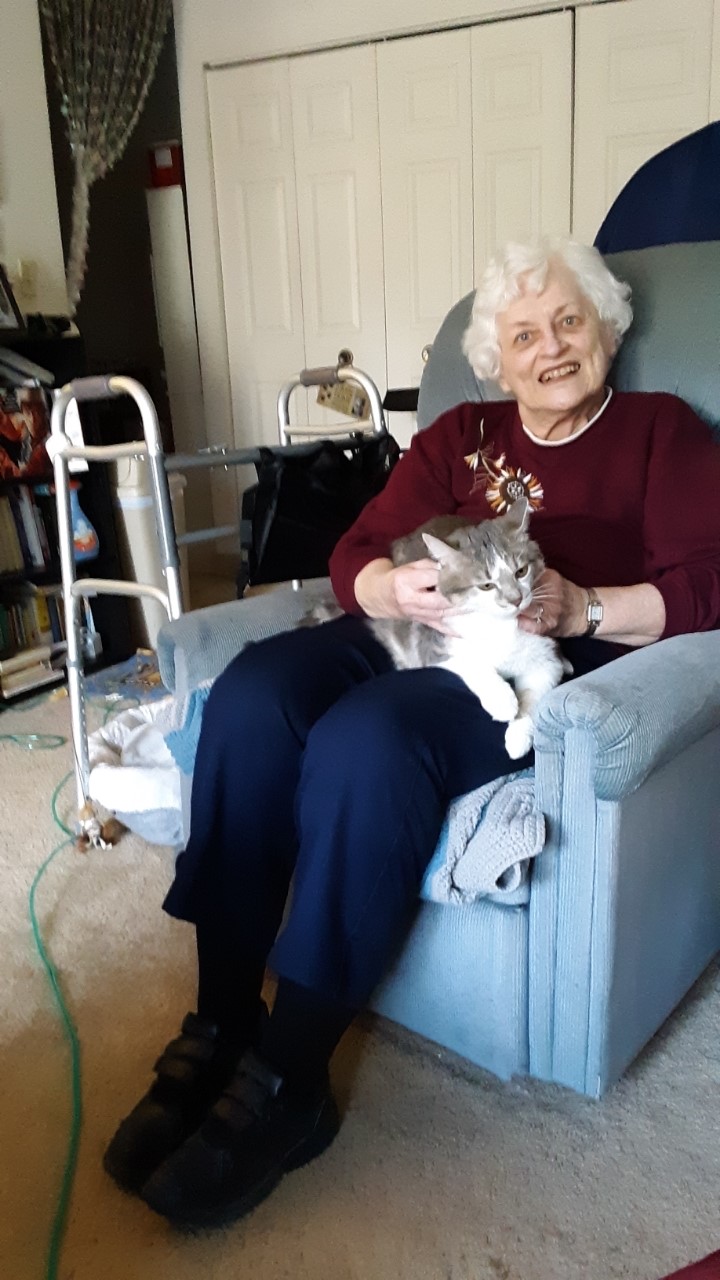
Listen to Dorothy Sherman
I lost my husband in 2019. And I was just starting to come out of the fog in 2020 when the pandemic hit. I was lucky enough to be connected to a grief group. There were about 20 women in the group and our leader was kind enough to let us meet on her driveway. That was so wonderful that we could do that. Being able to share how hard it is to get through the day when you’re thinking about your loved one all the time. You can’t let it go, and you’re not as busy as you hope to be because of COVID.
As the weather got colder, we squeezed into her garage. I even wore a winter coat, hat and gloves at our last November meeting. They planned on meeting in January in the facilitator’s home, but I already had told the facilitator I was not willing to meet inside.
The pandemic in 2021 has been so frustrating, and I know that’s true for millions of people in America.
People were not following the mask guidelines. People were not, in our state at least, getting vaccinated at the level we had hoped for.
And in 2021, I just started to become more and more afraid of COVID when I was hoping it would be just the opposite because of all the vaccinations. I’ve actually been staying home more, I’ve been more afraid to go out. I’m screening my friends more to make sure they’re following the CDC guidelines, and I just feel so depressed.
‘Extraordinary things can happen every day’
Johnna Knoke, 45, Ripon
Knoke teaches English language learners in her local school district. She said teaching virtually at the start of the pandemic made her appreciate her students’ progress in 2021 even more.
Listen to Johnna Knoke
I’m a teacher and my job is helping students, K-12, in pretty much any fashion. These are students that have just recently come from Central American countries.
What I’m finding now is that every day we see the students, they’re coming in in the morning, they’re walking down the hall, they look up at you and it’s a really big deal. Because there was a time when we did not get to see them.
For me to see my kids succeeding against a lot of odds is incredible. I just had a student, he was struggling behaviorally and also with reading and writing. He recently took a big assessment, and it just blew me away because of all the things that, when we were able to get together over the last two and a half school years, he remembered.
I’m not normally like this, but I just sat down in my car and I just let it all out. I think I cried all the way home. I couldn’t cry during the shutdown, I wouldn’t let myself. But I feel like I’ve been waiting, I’ve been waiting for something extraordinary. That’s the cool thing about being a teacher is that extraordinary things can happen every day.
‘I really don’t want to be connected to a battery the rest of my life’
Terry Erdmann, 56, Pulaski
Erdmann is an agriscience teacher at Pulaski Community Middle School. Three bouts of COVID-19 have left him with a serious heart condition and have forced him to retire early. The 2021-22 school year will be his last year of teaching.
Listen to Terry Erdmann
Our entire career got blown up in March of 2020. Going to virtual was extremely taxing. The end of June, I picked up COVID and I got real bad pneumonia. I was able to pull through that. And then about a month later, I kept having this pain on the top side of my heart.
And we went to the long-haul clinic in Green Bay for COVID. And the doctor there, she ran the EKG, and she says, ‘Your right ventricle is not working correctly.’ So I was getting one good heartbeat, then a pause of longer than normal. And then my heart would do, it almost looks like a double beat. It was making me extremely lightheaded, very forgetful. And it was scary.
If things don’t improve greatly, they’re going to throw a pacemaker in me. And some people have told me, “No big deal. Pacemaker’s not a big deal.” I’m 56 years old. I really don’t want to be connected to a battery the rest of my life. Once you use a thing like a pacemaker, your body must depend on that. So if that thing fails, is your heart going to keep moving?
When you watch the news and you hear people saying that this is a hoax, this is just like the flu or the common cold. Like, yeah, for some people it is; and some people, it’s killing them.
This week, WPR and WHYsconsin are bringing you stories of the way the pandemic has affected us. They include people who have lost family members, those who’ve lost jobs or changed careers, and patients and health care workers facing overburdened hospitals. For more stories on COVID-19, visit wpr.org/COVID.

